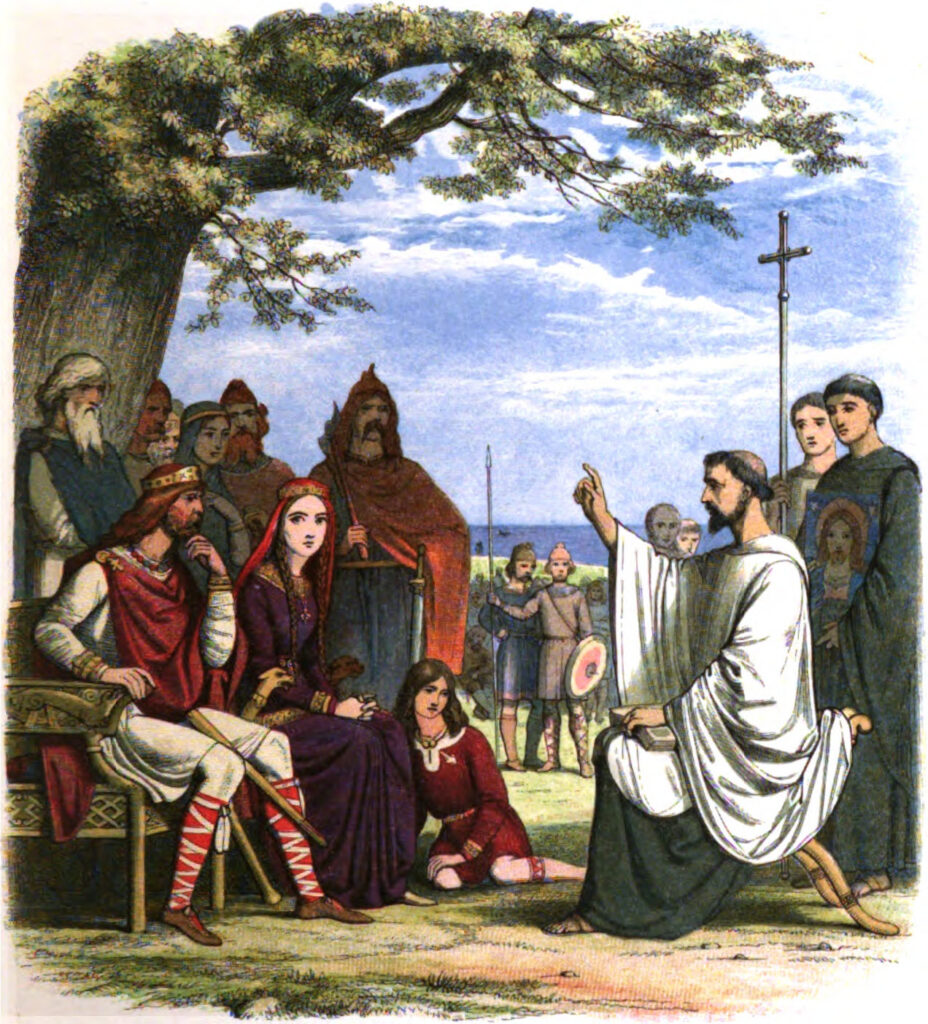New God for Old 1: the conversion of the Anglo-Saxons

It was 597 and a group of 40 Italians stood shivering on the Isle of Thanet, in the furthest south-east corner of Kent. They were waiting for the king of Kent, a barbarian with the uncouth name of Æthelberht, and they really didn’t want to be there. They had been dispatched from Rome the year before because the pope, Gregory, had developed the mad notion of sending a mission out beyond the ends of the world to convert the pagan Anglo-Saxons to Christianity all because, so he said, he had seen a group of fair-haired Anglo-Saxon youths for sale in Rome’s market and, seeing them, had asked of what people they came from. On being told they were Angles, Gregory had remarked, “Non Angli, sed angeli” (“Not Angles but angels”) and promptly conceived the idea of sending a mission to bring them out of darkness.
And who better to make up the mission than monks from Gregory’s own monastery of St Andrew on the Coelian Hill in Rome? And who better to lead it than his own dear friend, Augustine? As Augustine wrapped his cloak more tightly against the wind and stood on the chalk uprising that formed the Isle of Thanet, looking down to the broad expanse of the Wantsum Channel and the boat making its way across the channel, he thought again that, with a friend like Gregory, what need had he of enemies?
To get to this benighted corner of the world that had been cut off from the light of civilization for nearly two centuries, he and his companions had had to risk their lives crossing the unruly waters of the Great Ocean, so different from the warm blue of the Mediterranean, only to be told to wait on this wind-blasted promontory until the king of what passed for a kingdom on this island could come to meet them. At least King Æthelberht, although a pagan, was married to a Christian. His wife, Bertha, was a Frank, great-granddaughter of Clovis, the first Merovingian king. Another barbarian, but at least a half-civilised one.
The royal boat drew up on the strand and the king got out with his entourage of warriors and, Augustine was glad to see, his queen too, with her chaplain Liudhard. A condition of the marriage contract had been that Bertha could continue to practice her religion after marrying Æthelberht and she had brought a Frankish priest to Kent as part of her household that she might continue to have access to the sacraments.
The king’s reeve, who had met them when they landed on the isle, had told them to wait on the king’s pleasure but they had learned, while waiting for Æthelberht to arrive, that the king feared meeting this group of monks from far away under a roof lest they cast a spell upon him. Apparently the open air was safer so far as magic was concerned. So, with his cloak wrapped tight round his shoulders – did the wind never stop in this country? – Augustine waited on the king’s arrival.
0 Comments